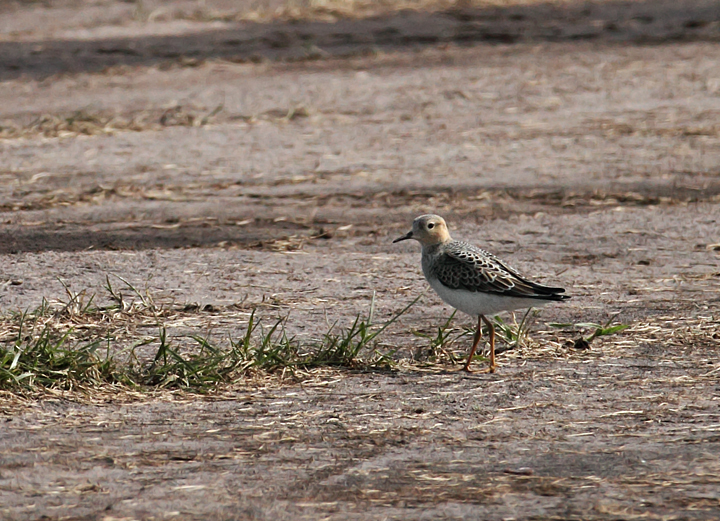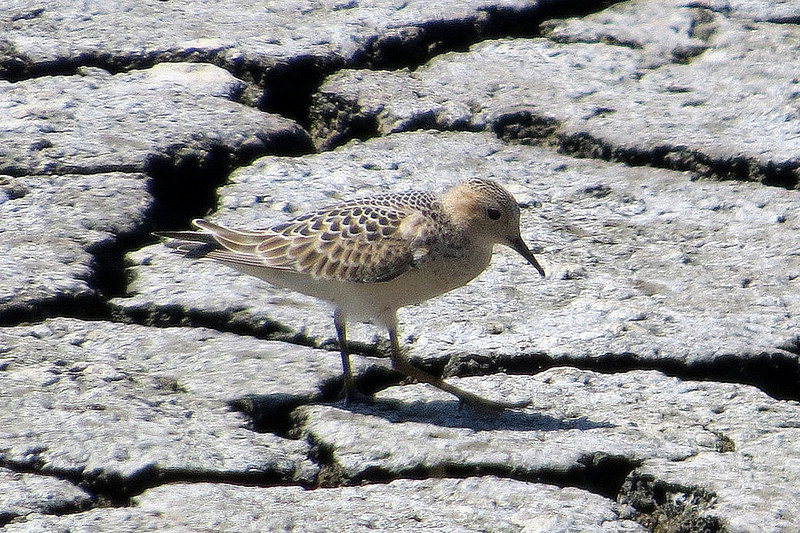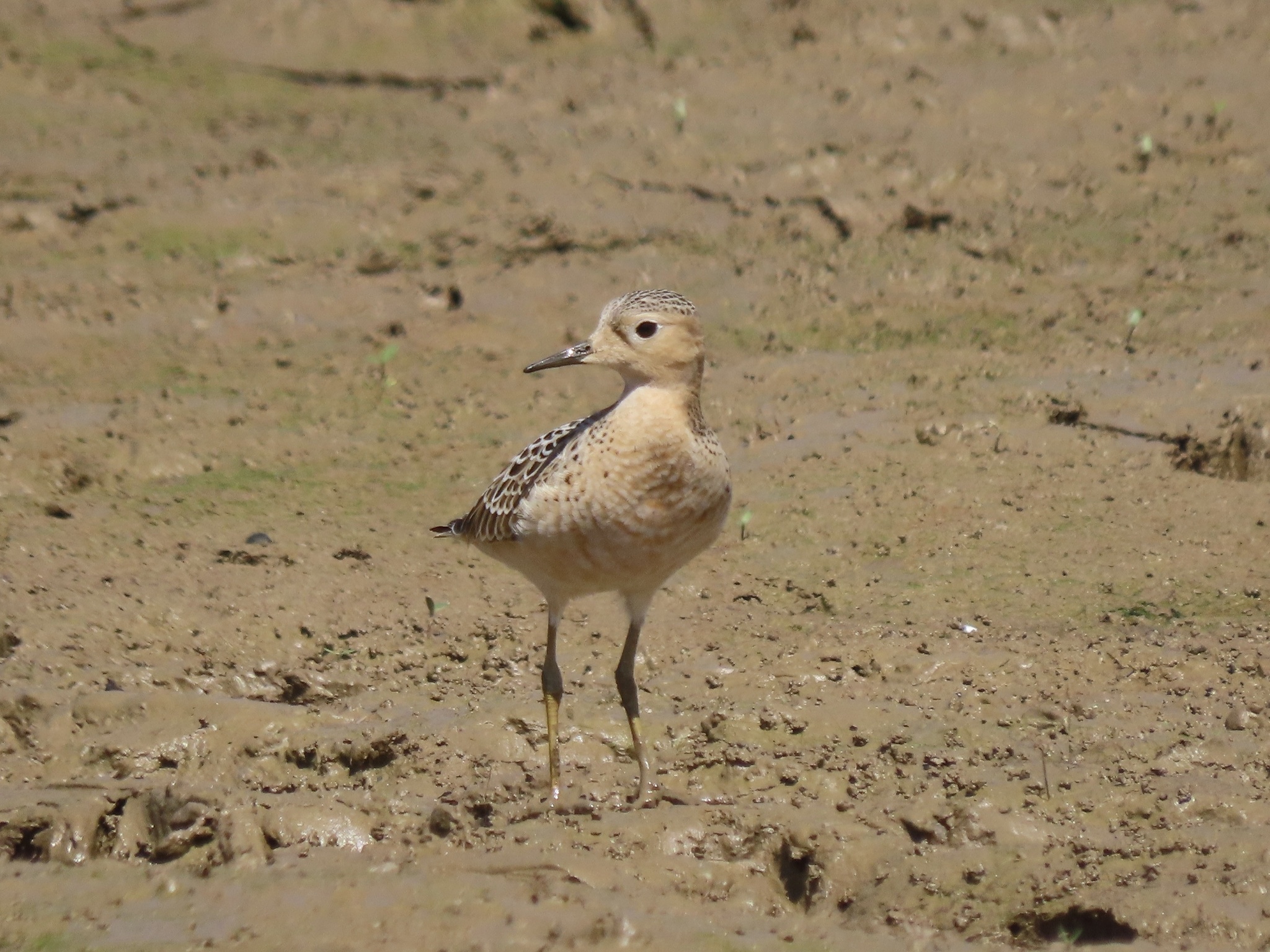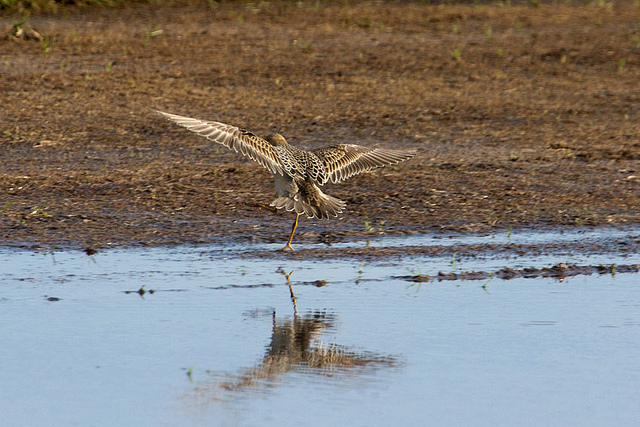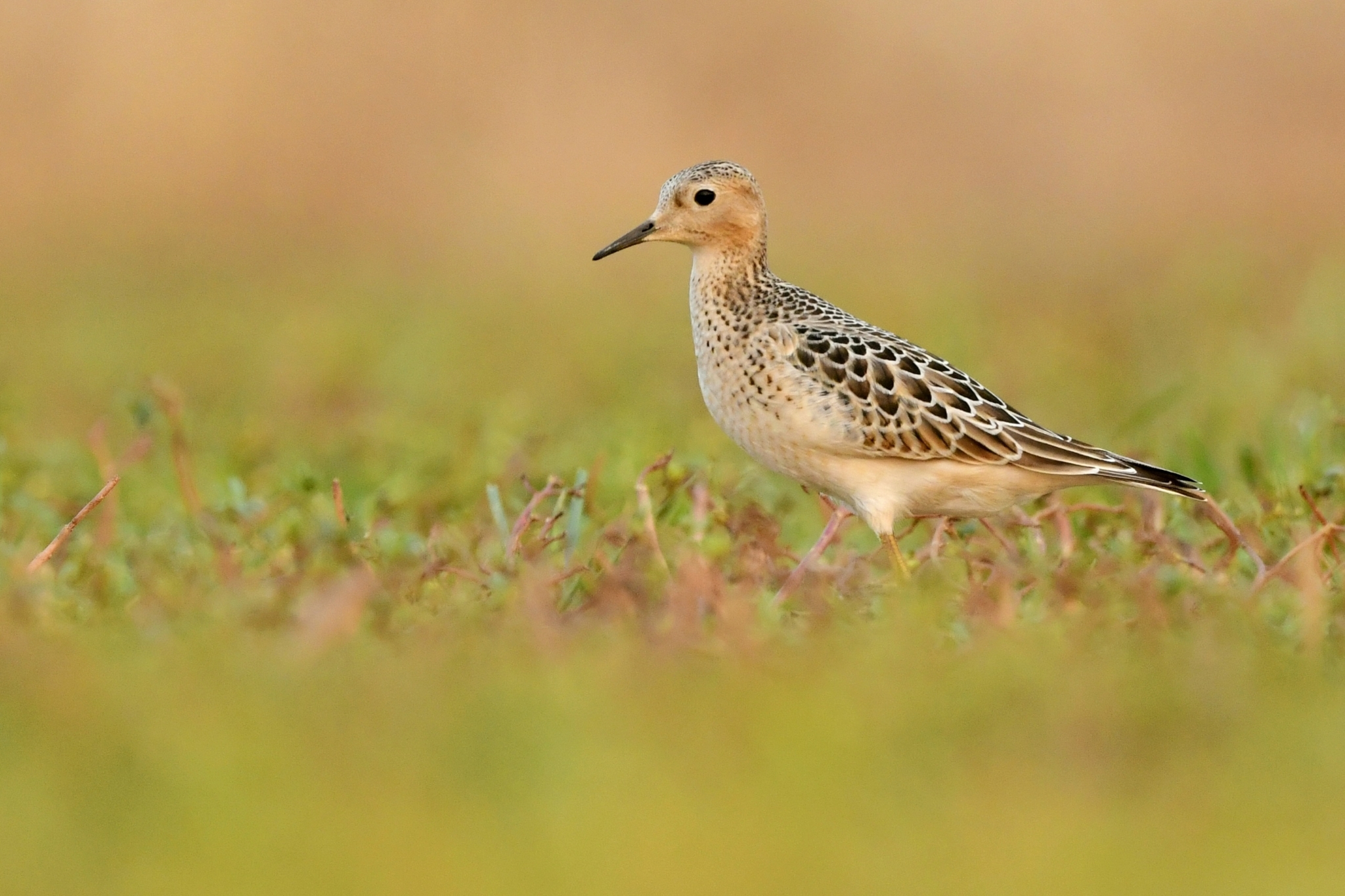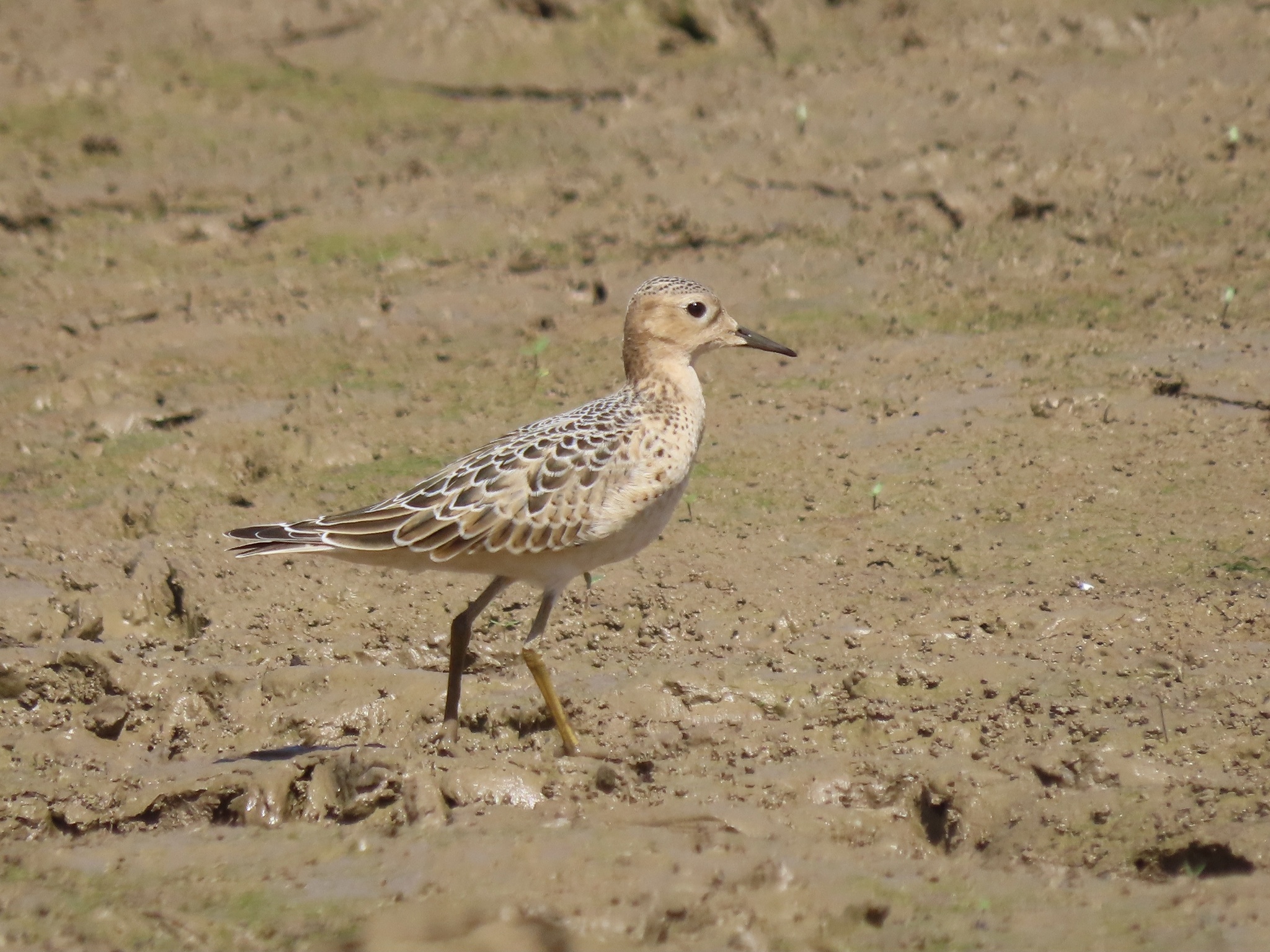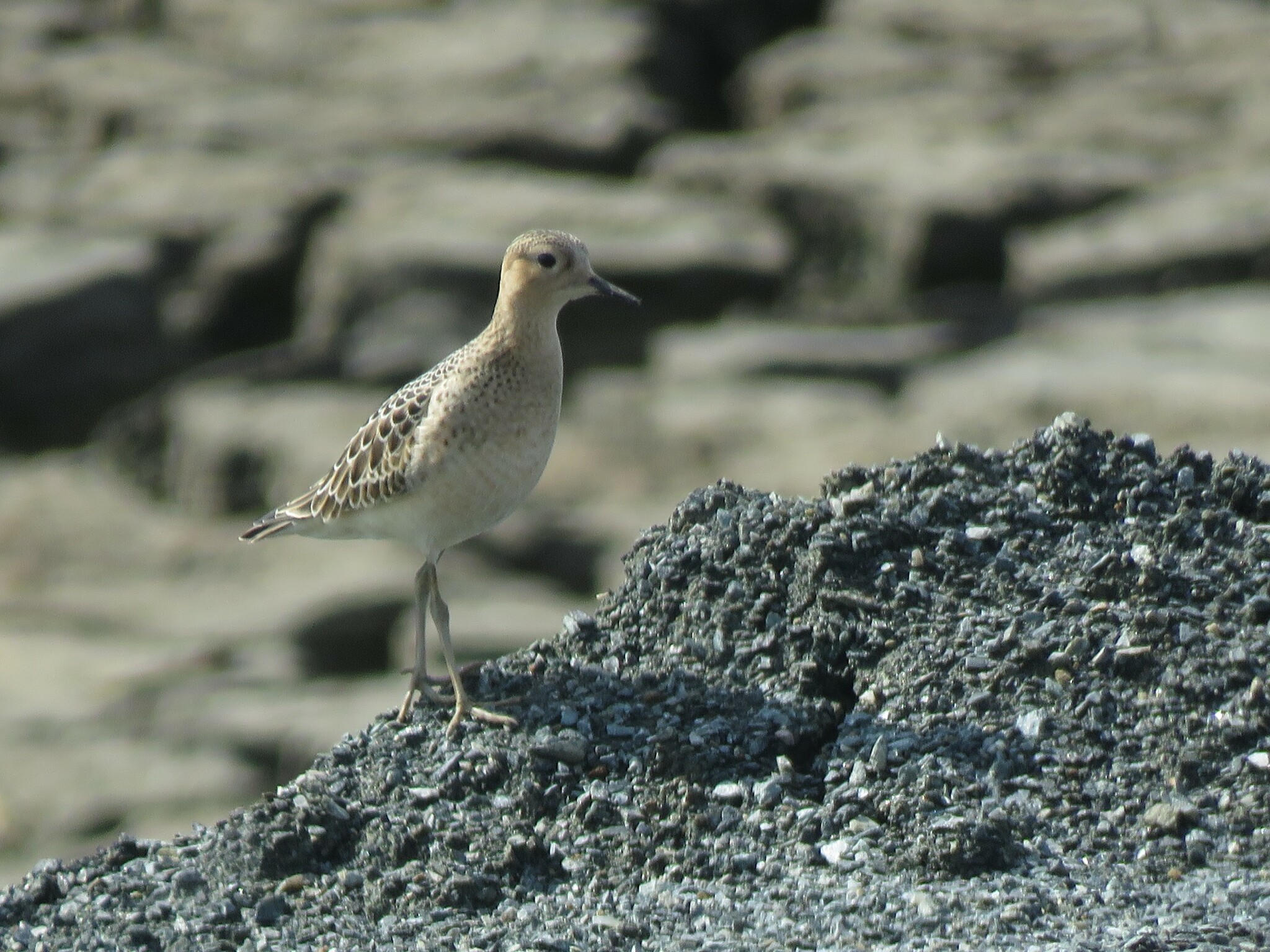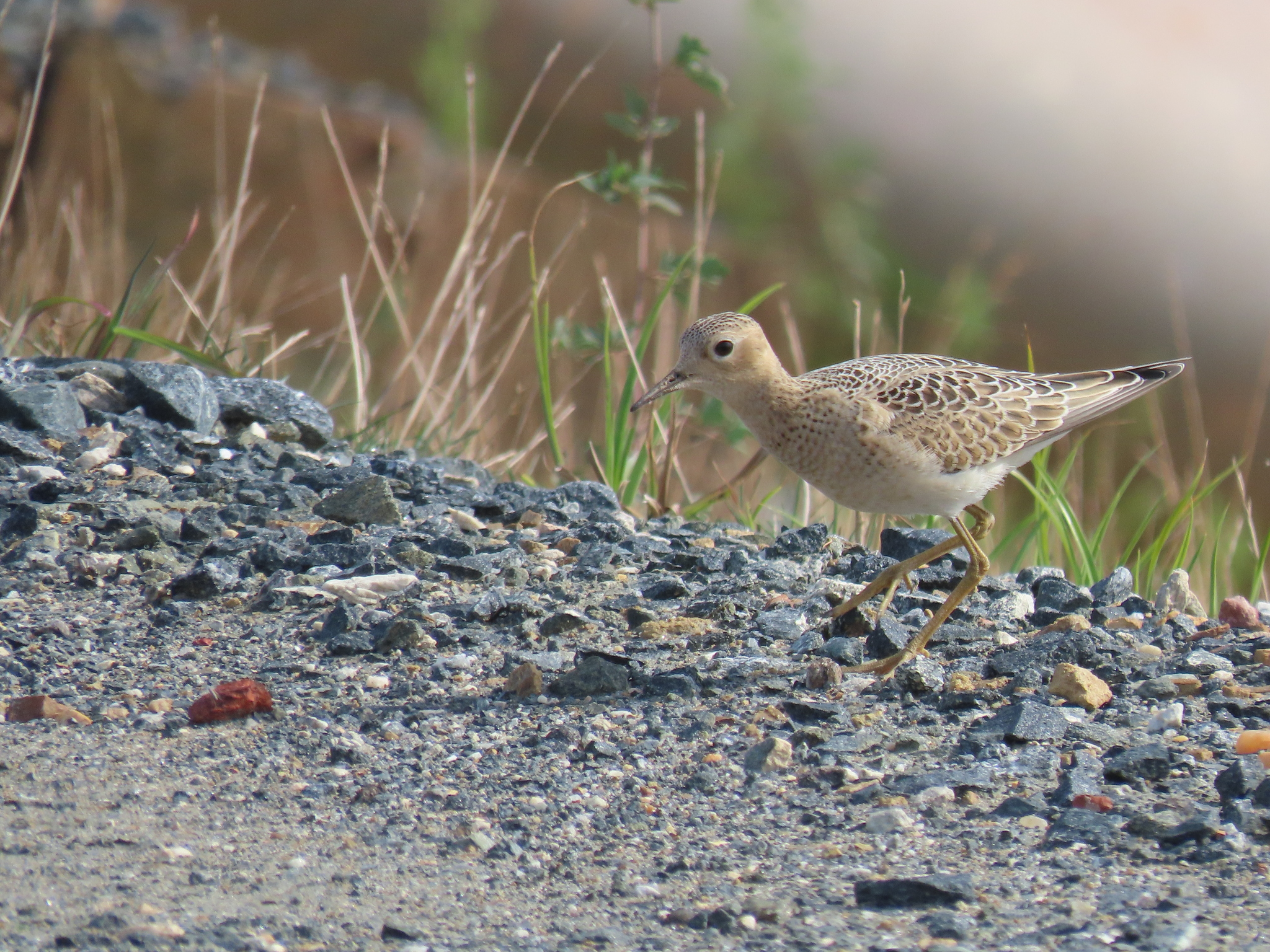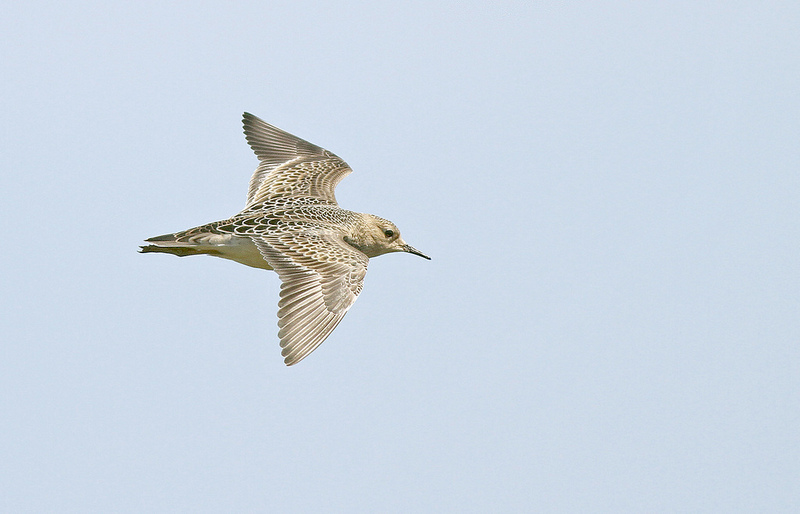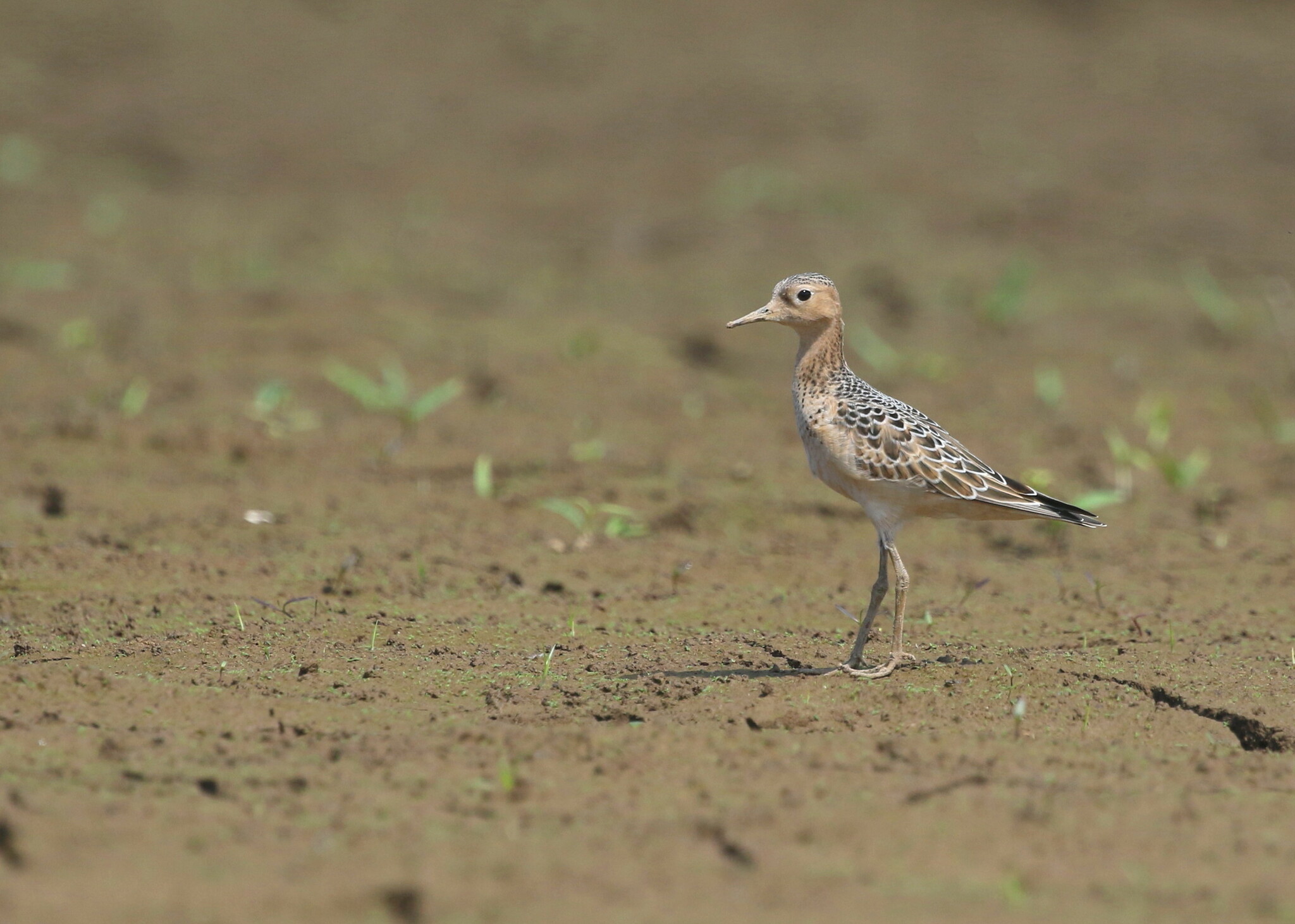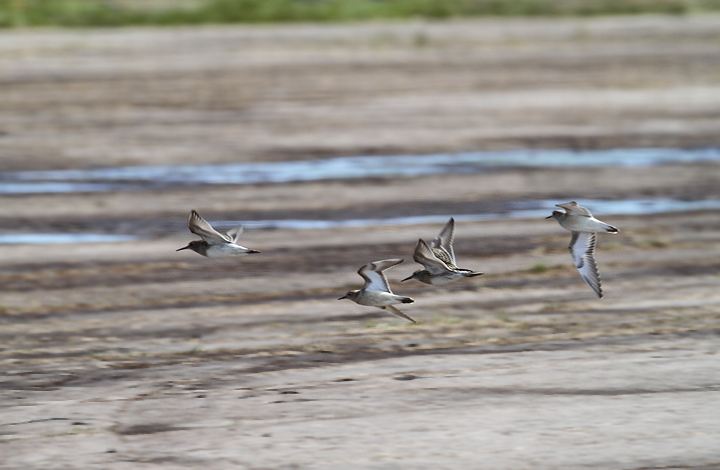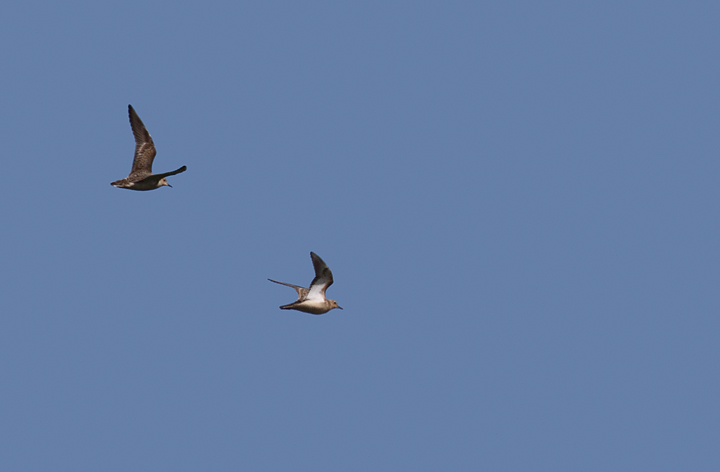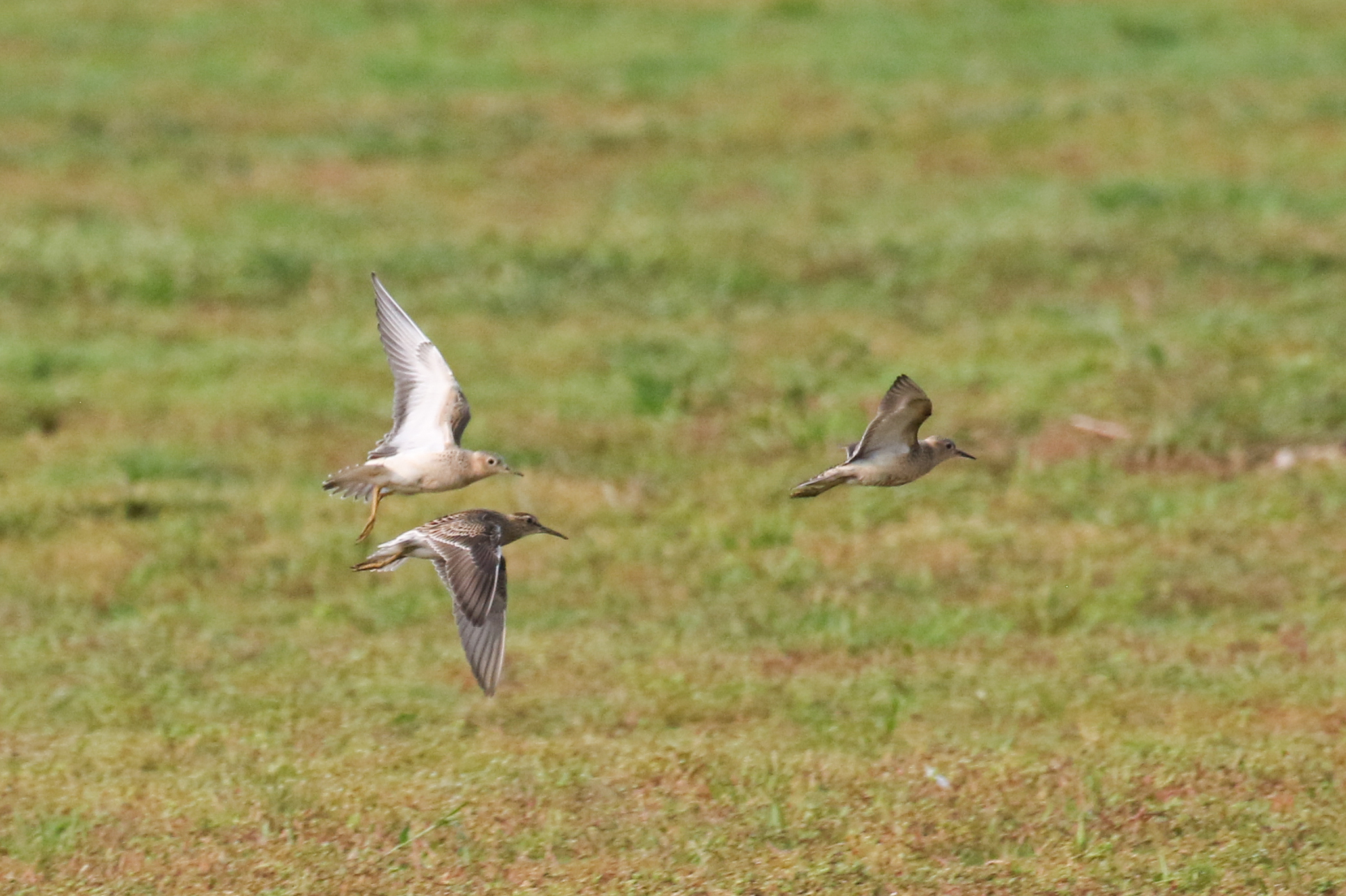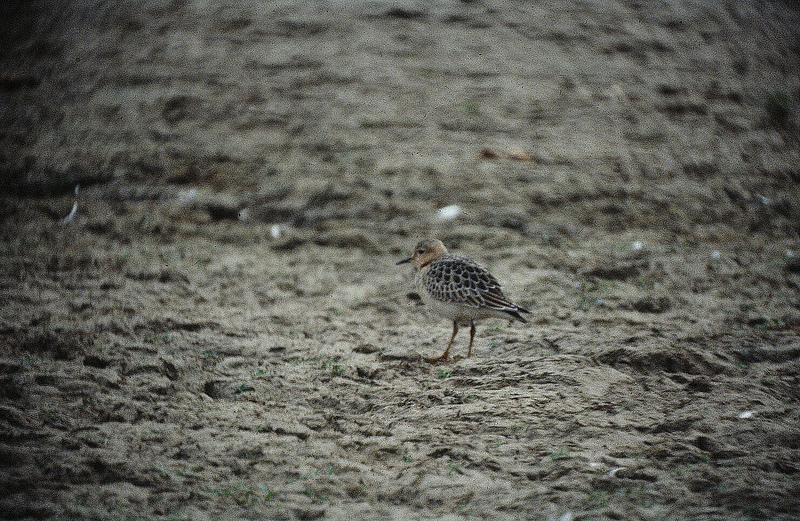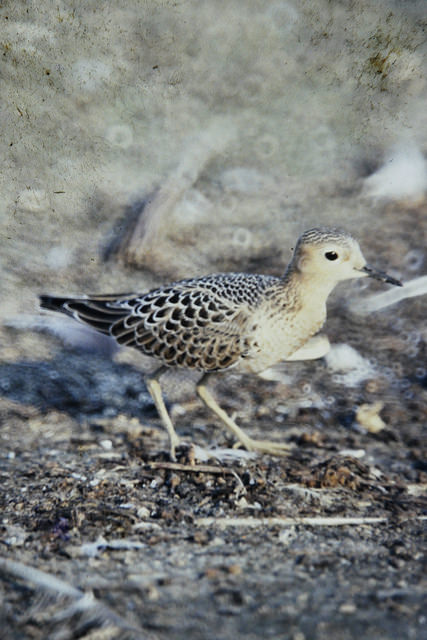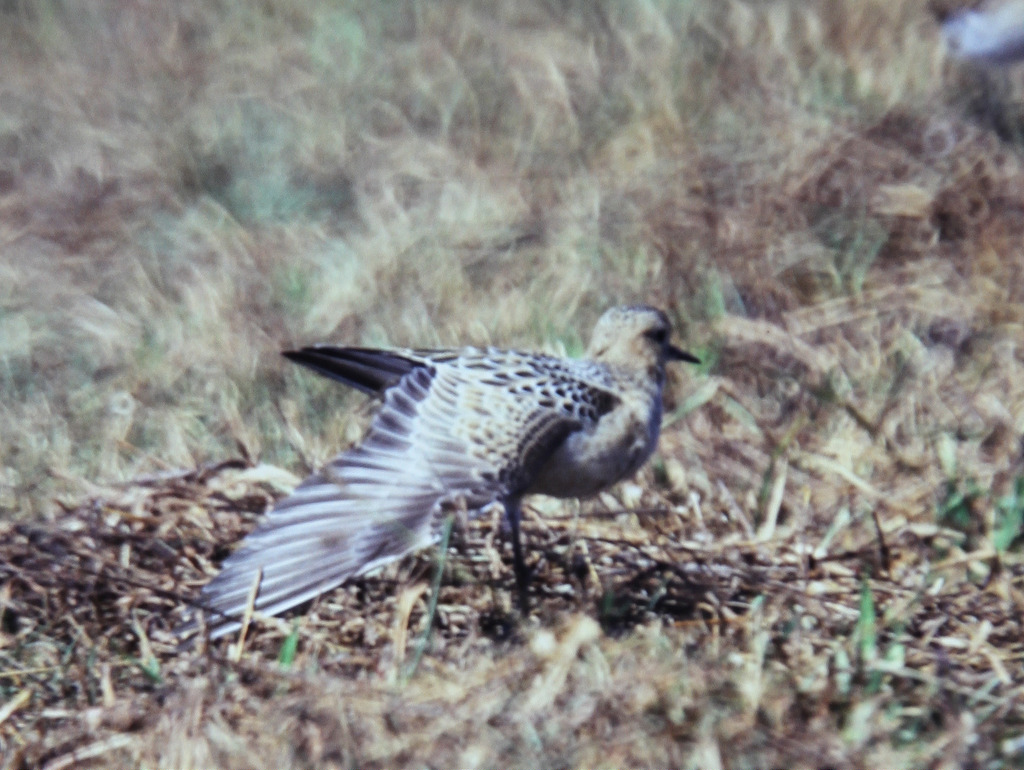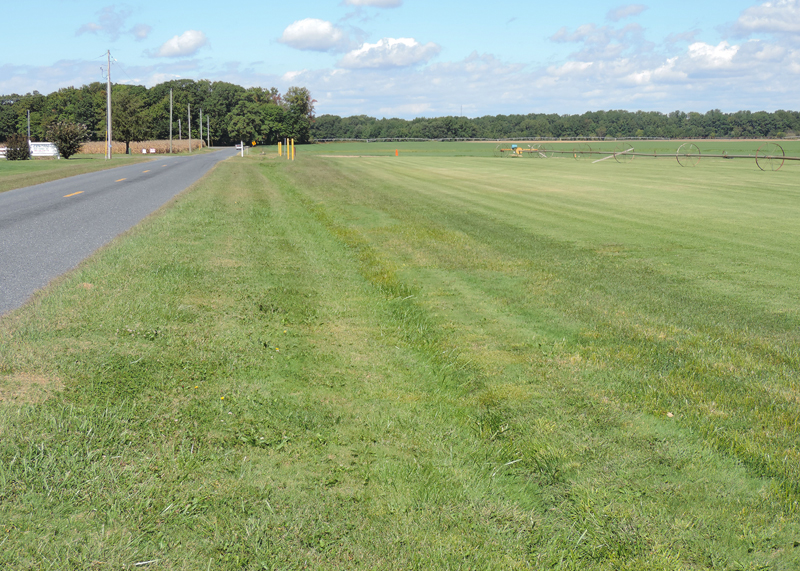Map Snapshot
























90 Records
Seasonality Snapshot
Source: Wikipedia
| Buff-breasted sandpiper | |
|---|---|
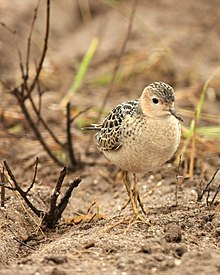
| |
| Scientific classification | |
| Domain: | Eukaryota |
| Kingdom: | Animalia |
| Phylum: | Chordata |
| Class: | Aves |
| Order: | Charadriiformes |
| Family: | Scolopacidae |
| Genus: | Calidris |
| Species: | C. subruficollis
|
| Binomial name | |
| Calidris subruficollis (Vieillot, 1819)
| |
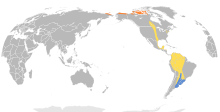
| |
| Synonyms | |
|
Tryngites subruficollis | |
The buff-breasted sandpiper (Calidris subruficollis) is a small shorebird. The species name subruficollis is from Latin subrufus, "reddish" (from sub, "somewhat", and rufus, "rufous") and collis, "-necked/-throated" (from collum, "neck").[2] It is a calidrid sandpiper.
Description
[edit]This species is brown above and has a buff face and underparts in all plumages. It has a short bill and yellow legs. Males are larger than females. Juveniles resemble the adults but may be paler on the rear underparts.
| Standard Measurements[3][4] | |
|---|---|
| length | 190–230 mm (7.5–8.9 in) |
| weight | 63 g (2.2 oz) |
| wingspan | 460 mm (18 in) |
| wing | 128.2–138.7 mm (5.05–5.46 in) |
| tail | 56.8–61.4 mm (2.24–2.42 in) |
| culmen | 19.9–21.3 mm (0.78–0.84 in) |
| tarsus | 31.8–34 mm (1.25–1.34 in) |
Distribution and habitat
[edit]
C. subruficollis breeds in the open arctic tundra of North America and is a very long-distance migrant, spending the non-breeding season mainly in South America, especially Argentina.
It migrates mainly through central North America and is uncommon on the coasts. It occurs as a regular wanderer in Western Europe and is not classed as rare in Great Britain or Ireland, where small flocks have occurred. Only the pectoral sandpiper is a more common American shorebird visitor to Europe.
This species nests as far north as Canada including Alaska[5] on the ground, laying four eggs. The male has a display which includes raising the wings to display the white undersides, which is also given on migration, sometimes when no other buff-breasted sandpipers are present. Outside the breeding season, this bird is normally found in short-grass habitats such as airfields or golf courses, rather than near water.
These birds pick up food by sight, mainly eating insects and other invertebrates. The buff-breasted sandpipers are known to prey on Bombus polaris, a species of bumblebee found within the Arctic Circle.[6] They will either eat the bees or feed them to their young.[6] They are often very tame.
Buff-breasted sandpipers are suspected to have hybridized with the white-rumped or Baird's sandpiper.
In South Asia and Australia
[edit]This species has been sighted in South Asia on at least three occasions. It is believed that instead of going to Argentina, this bird might have been wind-blown from the Great Plains Flyway of North America and landed up in South Asia. In November 2011, this species was sighted near Kannur, Kerala in South India.[7] The buff-breasted sandpiper has also been recorded in Australia on at least eight occasions.[8] It was recorded again from Madayipara, Kannur in 2023.[9]
In 1978, Phillips recorded the species from Sri Lanka, and after that, very few sightings were recorded. In 2001 a single bird was also recorded in Marievale, South Africa.[10]
References
[edit]- ^ BirdLife International (2017). "Calidris subruficollis". IUCN Red List of Threatened Species. 2017: e.T22693447A111804064. doi:10.2305/IUCN.UK.2017-1.RLTS.T22693447A111804064.en. Retrieved 11 November 2021.
- ^ Jobling, James A (2010). The Helm Dictionary of Scientific Bird Names. London: Christopher Helm. pp. 372, 391. ISBN 978-1-4081-2501-4.
- ^ Godfrey, W. Earl (1966). The Birds of Canada. Ottawa: National Museum of Canada. p. 161.
- ^ Sibley, David Allen (2000). The Sibley Guide to Birds. New York: Knopf. p. 192. ISBN 0-679-45122-6.
- ^ Attenborough, D. 1998. The Life of Birds. p.206 - 208. BBC. ISBN 0563-38792-0
- ^ a b Statman-Weil, Zoe; Wojcik, Vicki. "The Arctic Bumblebee". www.fs.fed.us. USDA. Retrieved 6 November 2015.
- ^ Thomas, Jayan (26 November 2011). "North American Sandpiper in Kerala". migrantwatch.in.
- ^ "Decisions reached by BARC (The BirdLife Australia Rarities Committee)". Archived from the original on 2016-03-05. Retrieved 2013-03-06.
- ^ Naha, Abdul Latheef (12 October 2023). "Rare bird from arctic tundra brings cheer to top birders". The Hindu.
- ^ Rajeevan, P. C.; Thomas, Jayan. "Buff-breasted Sandpiper Tryngites subruficollis from northern Kerala : a third record for India" (PDF). Indian Birds.
External links
[edit]- BirdLife species factsheet for Calidris subruficollis
- "Buff-breasted sandpiper media". Internet Bird Collection.
- Buff-breasted sandpiper photo gallery at VIREO (Drexel University)
- Buff-breasted sandpiper Species Account – Cornell Lab of Ornithology
- Buff-breasted sandpiper - Tryngites subruficollis - USGS Patuxent Bird Identification InfoCenter
- Audio recordings of Buff-breasted sandpiper on Xeno-canto.
- Tryngites subruficollis in Field Guide: Birds of the World on Flickr
- Buff-breasted sandpiper media from ARKive
